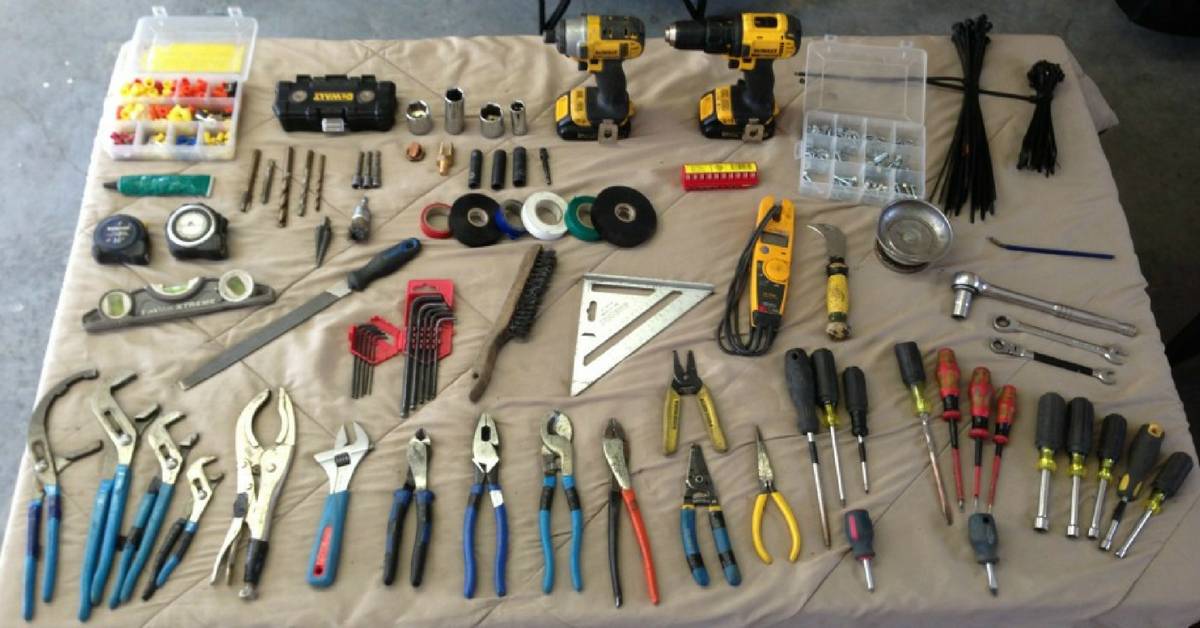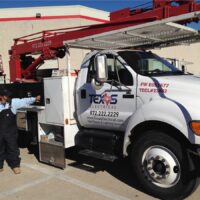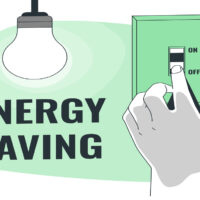The world of electrical work requires a vast array of tools for various tasks. Multimeters, wire strippers, and voltage testers are among the essentials.
Embarking on any electrical project without the right tools can lead to inefficiencies, safety hazards, and subpar work. Electricians rely on specialized instruments to ensure accuracy, safety, and compliance with industry standards. Whether installing new wiring, troubleshooting an electrical problem, or performing routine maintenance, having the proper tools is crucial.
These instruments range from basic hand tools like screwdrivers and pliers to more advanced equipment such as circuit finders and oscilloscopes. Each tool serves a specific purpose, enabling professionals to diagnose issues, make repairs, and install components with precision. For hobbyists and DIY enthusiasts, understanding these tools is equally important to ensure that any electrical work undertaken at home is completed effectively and safely.
Basic Electrical Tools
Electricians know the right tools make all the difference. Essential gear ensures safety and efficiency. Our focus today? Basic electrical tools. These are must-haves for professionals and DIY enthusiasts alike. Let’s dive into some fundamental tools that belong in every electrician’s toolbox.
Wire Strippers
Wire strippers are vital for any electrical job. They remove insulation from wires without damaging the metal. Their sharp blades cut cleanly, ensuring perfect connections every time. Consider these features when choosing wire strippers:
- Comfortable grip: Reduces hand fatigue
- Adjustable size: Accommodates various wire gauges
- Built-in cutter: Handy for trimming wires
Pliers
Pliers are the extensions of an electrician’s hands. They twist, bend, and cut wires with precision. Look for these types when stocking up:
| Type | Use |
|---|---|
| Needle-nose pliers | Reach tight spaces |
| Side-cutting pliers | Heavy-duty wire cutting |
| Linesman pliers | Grip and splice wires |
Voltage Tester
A voltage tester is a lifesaver. It confirms if circuits are live. This helps avoid shocks. Choose one that is:
- User-friendly: Simple to use with clear readings
- Non-contact: Detects voltage without touching wires
- Accurate: Provides reliable results for safe work

Credit: www.pinterest.com
Power Tools
Power tools are the muscle behind any electrical project. These tools save time, increase precision, and reduce physical effort. They are essential for both professionals and DIY enthusiasts. Let’s explore some must-have power tools that belong in every electrician’s arsenal.
Drills
Drills are the cornerstone of power tools. They make holes in seconds that would otherwise take minutes. Here are popular types:
- Cordless Drills: Offer freedom of movement without cords.
- Hammer Drills: Drill into concrete and masonry with ease.
- Impact Drivers: Excellent for driving screws and fastening.
Saws
Saws are all about precision and power. They cut through materials like butter. Types include:
| Type | Use |
|---|---|
| Circular Saws | Straight cuts in wood, metal, and plastic. |
| Reciprocating Saws | Demolition work, cutting through many materials. |
| Jigsaws | Curved cuts for detailed work. |
Sanders
Sanders smooth out surfaces with ease. They’re perfect for finishing touches. Consider these:
- Orbital Sanders: For smooth, polished surfaces.
- Belt Sanders: For rapid removal and leveling of material.
- Detail Sanders: For tight spaces and intricate areas.
Diagnostic Tools
Electricians need the best tools to find electrical issues. Diagnostic tools help them do this. They test electricity in different ways. Let’s look at some important ones.
Multimeter
A multimeter is a must-have. It measures voltage, current, and resistance. Electricians use it to check batteries and wiring. A good multimeter gives accurate readings. It’s a toolbox essential.
Circuit Tester
The circuit tester finds electrical paths. It’s simple to use. Just touch the tester to the circuit. If it lights up, electricity is present. This tool keeps electricians safe.
Infrared Thermometer
An infrared thermometer checks temperature without touch. Point it at an object and get a reading. It’s used to find hot spots in electrical panels. This helps prevent fires.
| Tool | Use |
|---|---|
| Multimeter | Measures electrical values |
| Circuit Tester | Indicates live circuits |
| Infrared Thermometer | Reads surface temperatures |
- Multimeters come in analog and digital.
- Circuit testers should be double-checked for safety.
- Infrared thermometers can’t measure air temperature.

Credit: www.freepik.com
Safety Gear
Working with electricity demands respect for safety. Safety gear is non-negotiable. It protects from shocks, burns, and other injuries. Every electrician needs these essential items.
Safety Glasses
Eyes need shielding from sparks and debris. Safety glasses are a must. They should fit snugly and be anti-fog. Clear vision is crucial for precision work.
- Impact-resistant lenses
- Wrap-around design
- UV protection for outdoor work
Gloves
Hands are always at risk. Gloves guard against cuts and shocks. They need to be durable, yet flexible. Grip is important for handling tools safely.
- Insulated for electrical work
- Snug fit for dexterity
- Resistant to abrasions
Hard Hat
A hard hat is essential for head protection. Falling objects are a real danger. Choose a hard hat that’s both comfortable and sturdy. It should meet industry standards.
- Adjustable for a secure fit
- Ventilation for comfort
- Electrical insulation for extra safety
Specialized Tools
Every electrician knows that specialized tools are essential. They make tasks easier, quicker, and safer. Here, we dive into three crucial tools every pro uses.
Cable Pullers
Cable pullers are vital for moving large, heavy cables through conduits and tight spaces. They save time and reduce physical strain. Different types include:
- Manual cable pullers
- Electric cable pullers
- Hydraulic cable pullers
Choosing the right type depends on the job size and cable weight.
Conduit Benders
Conduit benders shape metal or plastic conduits to route electrical wires neatly. They help in creating:
- Precise angles
- Smooth curves
- Custom pathways
These tools ensure wires stay protected and organized.
Cable Cutters
Cable cutters are designed to cut wires and cables cleanly. Key features include:
| Type | Use |
|---|---|
| Diagonal cutters | Snipping wires |
| Ratcheting cable cutters | Cutting thick cables |
| Insulated cable cutters | Safe cutting around live wires |
Choosing the right cutter ensures clean cuts and safety.
:max_bytes(150000):strip_icc()/electrical-tools-you-need-4113231_hero-f6250ab0b2cc477eb9c00f1cbdaac8c1.jpg)
Credit: www.thespruce.com
Wire Management Tools
Wire Management Tools are essential for electricians and DIY enthusiasts alike. They help keep wires organized, safe, and easy to handle. Proper wire management ensures a tidy workspace and prevents accidents. Let’s explore some key tools that make wire management a breeze.
Cable Ties
Cable ties are the unsung heroes in wire management. They bundle wires neatly and can support a range of wire sizes. Here’s why they’re indispensable:
- Easy to use: Simply wrap around the wires and pull tight.
- Versatile: Available in different lengths and strengths.
- Durable: Made from strong materials like nylon.
Wire Labels
Wire labels are crucial for identifying cables. They prevent confusion and save time during maintenance. Key benefits include:
- Quick identification: Color-coded and numbered for easy reference.
- Adhesive backing: Sticks to wires securely.
- Resistant to conditions: Holds up against heat, cold, and moisture.
Fish Tape
Fish tape is a tool that pulls wire through conduit or tight spaces. It’s a must-have for threading wires. Its features are:
- Flexible: Glides through bends and angles.
- Sturdy: Can pull multiple wires at once.
- Compact: Fits in any toolbox.
Maintenance And Cleaning Tools
Maintenance and cleaning tools are crucial for the longevity and functionality of electrical equipment. They ensure that every component stays in top condition, preventing malfunctions and ensuring safety. Let’s delve into some essential tools that should be in every electrician’s toolkit.
Contact Cleaner
Contact cleaner is a must-have for any electrician’s toolkit. It helps in removing dirt, oil, and oxidation from electronic contacts. This ensures that the connections remain secure, which is vital for the optimal performance of electrical systems. Using a contact cleaner regularly can prevent signal loss and component failure.
Deburring Tool
A deburring tool is essential for smoothing out rough edges on metal pipes and conduits. It helps in preventing wire damage when pulling cables through conduits. A clean, burr-free edge ensures that the installation is safe and reduces the risk of short circuits.
Cable Lubricant
Using cable lubricant eases the process of pulling wires through conduit. It reduces the friction between the cable and the conduit, minimizing the effort required and protecting the cable from abrasion. A well-lubricated cable also helps prevent snags and tears, ensuring a smooth installation process.
| Tool | Use |
|---|---|
| Contact Cleaner | Cleans electronic contacts |
| Deburring Tool | Smoothens metal edges |
| Cable Lubricant | Eases wire pulling |
Frequently Asked Questions
What Is 10 Electrical Tools?
Ten essential electrical tools include multimeters, wire strippers, voltage testers, pliers, screwdrivers, cable cutters, circuit finders, crimping tools, fish tapes, and insulation resistance testers. These tools help electricians install, inspect, and troubleshoot electrical systems safely and efficiently.
What Tools Should Every Electrician Have?
Every electrician should have a multimeter, wire strippers, pliers, screwdrivers, a voltage tester, a tape measure, and a flashlight. These essential tools ensure safety and efficiency during electrical work.
What Is The Name Of Electric Tools?
Electric tools are commonly known as power tools and include drills, saws, sanders, and grinders.
What Are The Equipment Used In Electrical?
Electrical equipment includes circuit breakers, transformers, generators, motors, conductors, and switchgear. Voltmeters, ammeters, and multimeters are essential for testing and measuring.
Conclusion
Exploring these 50 electrical tools has armed you with essential knowledge for any electrical project. Whether you’re a seasoned electrician or a DIY enthusiast, the right tools empower you to work efficiently and safely. Remember, choosing quality equipment is an investment in your craft and safety.
Stay equipped and stay safe!




